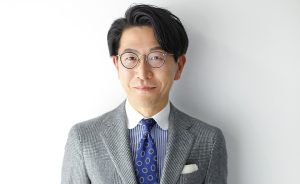It is commonly believed that if you choose to keep innovations a secret, then you cannot attempt to patent them. If you attempt to patent them, you obviously cannot keep them secret, because they will be published about 18 months after the earliest claimed priority date. In addition, many non-US based companies believe that a prior user right will enable them to claim a defense if threatened with a lawsuit from a US patent holder. To most persons reading this article, it will come as a surprise that the above assumptions are simply not true insofar as the US is concerned.
Once the previously secret information is published, one can no longer rely on trade secret protection.
Not mutually exclusive
The fact that trade secret rights and patent rights are mutually exclusive is indeed the case in Europe (including Switzerland), China, Japan, South Korea, India, Russia, and essentially every industrialized country of the world. This means that if you choose to protect your invention with a patent application, you subject yourself to publication of that patent application at 18 months after the earliest claimed priority date or the date of filing of the application, whichever date is earlier. Publication destroys trade secret rights in the published information.
Once the previously secret information is published, one can no longer rely on trade secret protection. Consequently, it is clear to essentially all IP professionals that the choice to file a patent application comes with an obligation to give up any trade secret rights in the content of this patent application at least after a period of time when it is too late to prevent publication at 18 months.
There are, however, two significant exceptions that apply to the US.
First, the filing of a US provisional patent application does not constitute acceptance of publication at 18 months because US provisional patent applications are never published until they are claimed in a regular patent application[i].
Therefore, if you file and pay the fees for a US provisional patent application, and do nothing further, the US provisional patent application will not publish and so, unless you or someone else publishes previously secret information about your invention, or unless you fail to make a reasonable effort to keep it secret, your invention will indeed remain secret and so you may preserve your trade secret rights in this information.
The Leahy-Smith America Invents Act of 2011 (AIA) provides a "prior use defense" to patent infringement.
Second, if a regular US application is filed together with a non-publication request, then, provided that the invention disclosed in an application has not been and will not be the subject of an application filed in another country, or under a multilateral international agreement, that requires publication of applications eighteen months after filing, the application will not be published, assuming formalities are met.
Further, grant of a US patent application can be postponed for years if the postponement is based on legitimate reasons.
No prior user defense
The Leahy-Smith America Invents Act of 2011 (AIA) provides a "prior use defense" to patent infringement. Specifically, a party may defend a patent infringement suit by establishing clear and convincing evidence, that the patented subject matter was “commercially used” in the US at least one year before the effective filing date of the claimed invention.[ii]
The new prior use defense provision applies to any patent issued on or after September 16, 2011. This defense is similar to what one finds in countries like Germany and Switzerland, in that the prior use had to have taken place a certain amount of time before the filing of the third party rights asserted against the defendant, and such rights are based on use in their country, not elsewhere. This means that all those practicing secret processes outside of the US simply have no prior user defense. Therefore, failure to have timely reserved your patent rights in the US may leave you with no means to preserve the US market for your product, should a competitor assert patent rights against you there.
Unfortunately, preserving trade secret rights and patent rights in this manner is simply not possible once a European, Swiss, Japanese, Chinese or Korean patent application is filed.
Conclusion:
“Overall, the legal profession is becoming more global. It is no longer sufficient to be able to advise clients in your home jurisdiction. To empower clients with the information they need to succeed, you must provide globally oriented services, cognizant of the advantages and disadvantages that each jurisdiction or market offers, and as such this will remain our ongoing focus as we look towards a bright future.”
To preserve your trade secret rights in trade secret methods difficult or impossible to reverse engineer from study of the final product and reserve significant patent rights at the same time, file a US patent application first (a provisional or non-provisional, the non-provisional being filed with a non-publication request), and make a reasonable effort to protect the content of the patent application and of your trade secret process, secret. Given that the valid filing of a non-publication request is not possible once a foreign-to-the-US application has been filed, this requires that the priority applications for such technologies be filed in the US first. Doing so preserves all your options, maximizes your US rights, and can offer significant strategic advantages should you receive a cease and desist letter from the owner of a US patent covering your secret process.
Unfortunately, preserving trade secret rights and patent rights in this manner is simply not possible once a European, Swiss, Japanese, Chinese or Korean patent application is filed.
About the author and Da Vinci Partners LLC
The author, John Moetteli, is managing attorney of Da Vinci Partners LLC, a team of US and European IP attorneys operating through a Swiss-based firm who are able to offer their clients a unique range of services. Supporting a wide range of international clients, Da Vinci Partners LLC, just two hours' drive from the European Patent Office, an hour from Zürich, and 15 minutes from the Swiss patent court, draws on a vast wealth of experience and expertise.
“Being US, European and international patent attorneys, Da Vinci Partners can represent clients before national and international authorities in Europe, Switzerland, Liechtenstein and the US. As we have our headquarters in Switzerland, we can represent essentially any client regardless of their country of domicile before the US and Swiss Patent and Trademark Office, as well as the European Patent Office. Further, using our extensive network of correspondents, we can manage any intellectual property matter anywhere in the world.”
“For patents, although based in Europe, we generally choose to file in the US first because, although the laws are now more harmonized, the US still offers the flexible provisional patent application, offers six more hours to file an application given the time difference with Europe, allows filing patent applications in any language, and enables the protection of trade secrets while still reserving patent rights.”
It is this innovative approach and the firm’s experience working with European and US law that enables it to mark itself out from its competitors, as John highlights.
“Thanks to our unique skillset, our firm’s main clients include everything from start-up ventures to large corporations in a wide range of intellectual property matters involving patent, trademark, litigation and licensing, as well as computer law, with particular emphasis on software patenting and licensing. We are competent to help clients procure patent protection in a wide variety of technical fields, including computer software, mechanics, electronics, medical devices, industrial processes and biotechnologies.”
“Another core feature which sets our firm apart is the fact that our firm is qualified to prepare and file patent and trademark applications for clients directly in the US, Europe, Switzerland and Liechtenstein. We can therefore also provide strategic advice to clients on how to proceed in these markets without having to first seek the advice of a middle man. This also means we can provide quick and cost-effective advice regarding issues that can affect our client’s IP properties in many critical world markets, an example of which is the ability to reserve patent rights and trade secret rights at the same time.”
“Furthermore, because our attorneys and staff speak fluent English, French, Italian, German, Russian, Ukrainian, Chinese and Spanish, we possess important language skills that help us keep in touch with our international client base online or through traditional means. Within the global legal economy, Asia is a market which is currently growing rapidly, and as such, there is an ever-expanding market for the legal services we offer. As we look to grow our Asia practice in China and our Asia advisory here in Europe, under our and brands. China has become an indispensable part of the Global economy, and so the protection of IP rights there is critical for many businesses.
Contact Details:
Company: Da Vinci Partners LLC
Contact: Dr. John Brent Moetteli
Address: Rathausgasse 1, 9320 Arbon Switzerland
Phone: 0041 71 230 1000
Web Address: www.davincipartners.com
[ii] 35 U.S.C. § 273(a)(2)




















